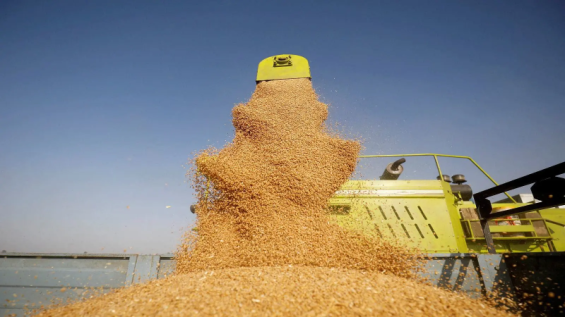An AI-powered insights company, Gro Intelligence, warns that continued drought in North Africa could push imports of key commodities like wheat even higher.
Their report, released earlier in February, focuses on Morocco, Algeria, and Tunisia, predicting increased wheat imports in 2024/25 to meet demand and replenish stocks due to the third consecutive year of drought.
The report utilizes Gro's own Drought Index, highlighting North Africa's position as the world's largest wheat importer. Wheat imports in the region already reached their highest level in seven years during 2023/24 due to drought conditions.
Weak precipitation
Their data reveals an alarming trend: the region's Drought Index has climbed to its highest point since at least 2003 for this time of year. Gro emphasizes that the recent rainy season (August-December) offered little relief, with accumulated precipitation falling well below average in all three countries: 50% below in Algeria, 63% below in Tunisia, and 55% below in Morocco.
Morocco, a top wheat producer and importer in Africa, is feeling the impact. Food prices here are 18% higher than pre-pandemic levels, and the current wheat crop shows vegetative health readings among the lowest in 20 years. This parallels 2022, when Morocco's wheat harvest plummeted and imports surged 45%.
Neighboring Algeria faces similar challenges. Wheat production there dropped 27% in 2023, with imports rising. Gro reports record-low soil moisture in its wheat-growing regions, suggesting sustained import dependence in 2024/25.
While some recent rain improved wheat health in Tunisia, the Drought Index remains high, and soil moisture declines. Tunisia also saw rising wheat imports in 2023/24 due to production drops and depleted stocks.





 chargement...
chargement...













